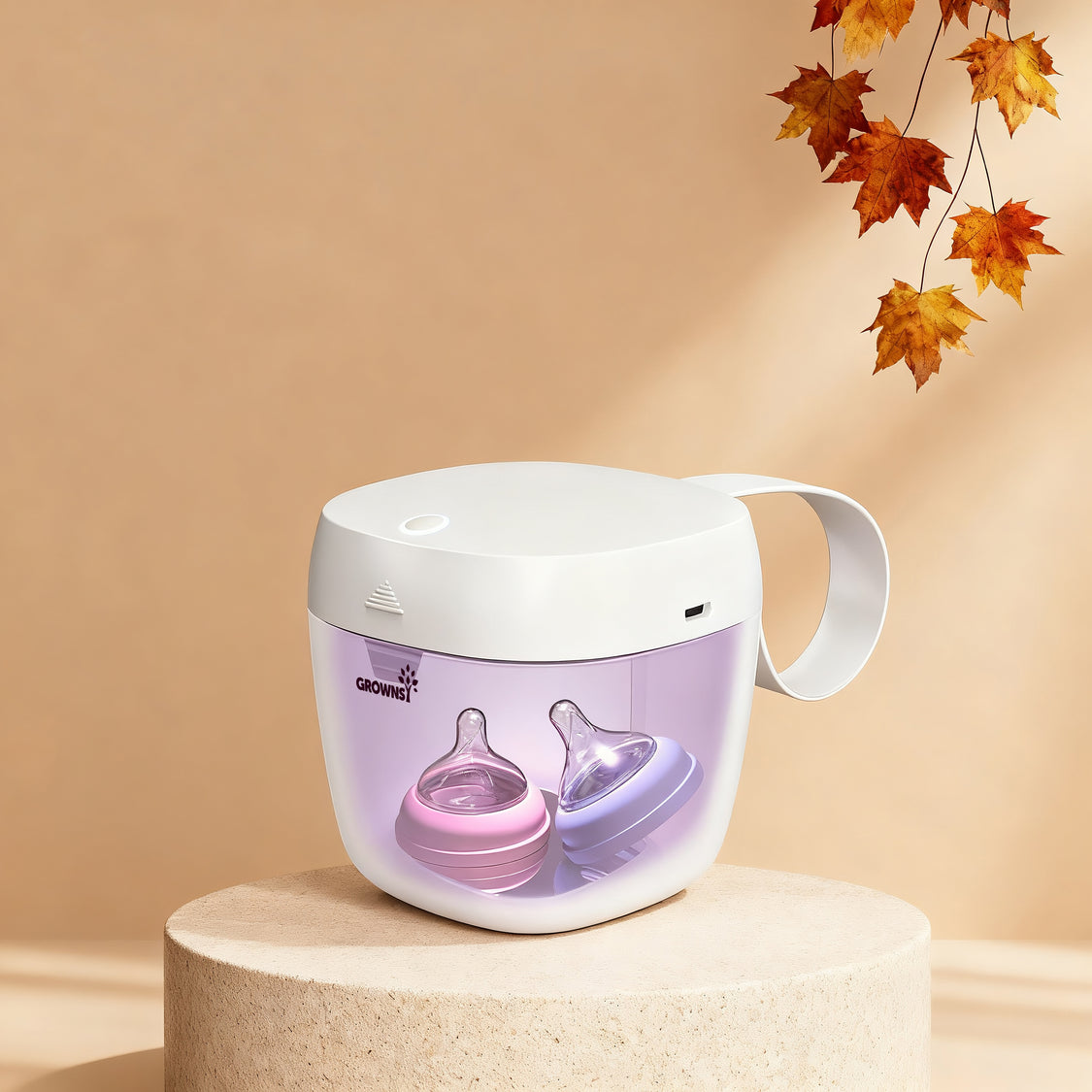Is This Bottle Sterilizer the Secret to Peace of Mind Every Parent Needs?
As a new parent, the health and safety of your baby become your utmost priority. Among the many concerns that swirl in a new parent's mind, the cleanliness of feeding bottles is a significant one. With the rise of various bacteria and viruses that can affect infants, ensuring that baby bottles are free from harmful pathogens is crucial. This concern often leads many parents to consider whether investing in a bottle sterilizer is truly necessary. In this article, we will explore the ins and outs of bottle sterilization, weighing the importance of keeping your baby's feeding equipment sanitary against the practicality and cost of a sterilizer.

The Importance of Bottle Sterilization
When it comes to baby health, sterilization plays an essential role. Infants have developing immune systems that make them more susceptible to infections. Health organizations, including the World Health Organization, recommend sterilizing bottles, especially in the first few months of life. This process helps eliminate harmful bacteria and viruses that can linger on bottles after washing. Without proper sterilization, residues from formula or breast milk can become breeding grounds for germs, potentially leading to gastrointestinal issues or other health concerns. By sterilizing bottles, parents can significantly reduce these risks and ensure that their little ones are protected from preventable illnesses. The peace of mind that comes with knowing that your baby's feeding equipment is sanitary is invaluable in those early, sleepless months.
Types of Bottle Sterilizers
When it comes to sterilizers, there are several options available on the market. The most common types include steam sterilizers, microwave sterilizers, and UV sterilizers. Steam sterilizers use heat and steam to kill bacteria and are generally user-friendly and effective. However, they can take up counter space and require access to electricity. Microwave sterilizers are another option; they are portable and quick, using steam generated in a microwave to sterilize bottles. On the downside, they may not be suitable for all bottle types. UV sterilizers use ultraviolet light to kill germs and are often praised for their convenience and speed. However, they can be more expensive than traditional steam or microwave options. Each type has its benefits and drawbacks, making it essential for parents to consider their specific needs and lifestyle when choosing a sterilizer.
Cost vs. Benefits: Is It Worth It?
Investing in a bottle sterilizer can seem daunting when you consider the variety of prices and models available. However, when weighing the cost against the potential health benefits and peace of mind, many parents find it a worthy investment. A sterilizer can range from budget-friendly to high-end options, depending on the features offered. The convenience of having a dedicated machine that completes the sterilization process quickly can save time and effort, especially during those busy feeding times. Moreover, the health benefits of ensuring that bottles are free from germs can lead to fewer trips to the pediatrician and a healthier baby overall. For many parents, the assurance that they are providing a safe feeding environment for their little ones justifies the initial expense, making it a smart choice for the long term.
Alternatives to Bottle Sterilizers
If a bottle sterilizer seems unnecessary or too costly, there are effective alternatives. Boiling water is a time-tested method that can efficiently sterilize bottles. By placing clean bottles in a pot of boiling water for at least five minutes, parents can achieve similar results to a sterilizer. Additionally, many dishwashers come with a sanitizing cycle that can effectively clean bottles, offering a convenient option for those already using a dishwasher for their baby’s dishes. While these methods may require more effort or time than using an electric sterilizer, they can still be effective in ensuring that feeding equipment is germ-free. Parents should evaluate their daily routines and preferences to determine which method aligns best with their lifestyle.
Real Parent Experiences and Opinions
To provide a balanced perspective, it's essential to consider the experiences of other parents regarding bottle sterilizers. Some friends of mine, who are parents, swear by their steam sterilizer, citing the ease it brings to their routine. They’ve mentioned how much time they've saved and the confidence they feel knowing their baby's bottles are sanitized. Conversely, I've also spoken to parents who opt for boiling bottles as their primary method. They feel that with proper washing and boiling, a dedicated sterilizer isn’t necessary and prefer the simplicity and lower cost of their method. These mixed opinions showcase that while many find value in sterilizers, others are perfectly content with alternative methods. Ultimately, personal preferences and experiences will guide parents in making the best decision for their families.
Final Thoughts on Bottle Sterilizers
In conclusion, the decision of whether to invest in a bottle sterilizer ultimately comes down to individual circumstances and preferences. While sterilization is an important aspect of baby health, there are various methods available, each with its advantages and disadvantages. Parents should weigh the financial considerations, the convenience of having a dedicated sterilizer, and the experiences of fellow parents when making their choice. Whether you choose a sterilizer or an alternative method, the priority should always be the health and safety of your baby. After all, every parent wants the peace of mind that comes from knowing they are doing everything they can to protect their little one.







